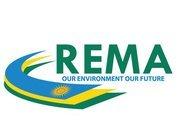Resource information
Sustainable land management best practices on integrated approaches to natural resources management covers all the major rural land use systems including agriculture, rangeland, and forestry. Environmental sustainability and sustainable livelihoods can be achieved only through a holistic approach in which different resource users and decision makers come together to agree on common objectives that also maintain the ecological integrity of the resource base.In Rwanda, farmers integrate both crop and livestock operations. Recognizing that the two are highly complementary biologically and economically, promotion of sustainable management of rangelands along with sustainable agriculture are beneficial.
Agricultural activities in the face of the high demographic pressure on limited land resources has resulted into land fragmentation, reduction of farm sizes and continued intensive cultivation of land with no fallow subjecting land to alarming soil erosion. The land policy and land law discourages land fragmentation and minimum allowed farm size is 1 ha. It promotes long-term land security that would promote investment in long-term infrastructure viable commercial ventures in agricultural sector. It also provides opportunities for gradual farm consolidation and increasing farm size and encouraging those who are capable to go into farming business. If the land policy and land law continues to be implemented slowly, its foregoing benefits can not be realized.
The concept of sustainable forest management recognizes the connections among the health of forests, communities, the economy, and the environment. Sustainable forest management
4
implies viewing the forest as an integrated whole rather than as the source of any one economic product or service (for example, timber or climate regulator). Sustainable forest management respects and integrates the full range of forest environmental, social, and economic values. The introduction and strengthening of sustainable forest management schemes, includes meaningful participation and benefit sharing by forest users, clear and respected tenure and use rights, sustainable market chain, development and implementation of forest management plans, and reforestation. Rwandan national policies and strategies provide a framework for increased efforts, including the development and strengthening of institutions and programs for forest management, protection, and sustainable development.
Issues surrounding land-use and planning need to be addressed. In Rwanda, the subject of land ownership and use is surrounded by imprecision, an imprecision reflected in the available cartography and data. Land can be located and registered in both graphical and attribute terms starting from a situation with almost no data is available. Land ownership in both public and private sectors forms the basis for development. Most disputes in general stem from legal claims to parcels of land. Constitutional provisions and new policies on land can help governments implement effective land reform programs.
Application of Global Positioning System (GPS) technology and mapping tools to land related projects is now a widespread phenomenon. The advantages have proven substantial in improving access to information. The use of high, but robust, technology such as GPS technology and mapping tools provides more simplification, increased efficiency, less cost, and sufficient accuracy. For such policies to be effective, it is important to embrace advancement in technology. Technologies such as GPS and mapping models are valuable decision-making tool for land managers. These technologies are advantageous because they are easy to use.


